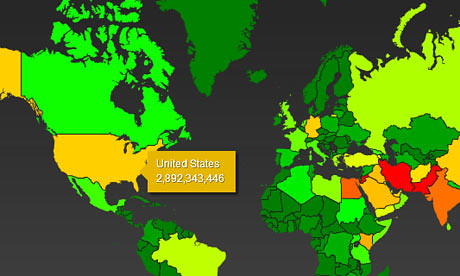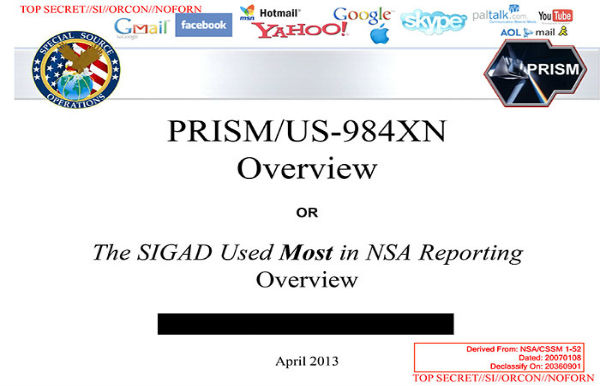According to the latest findings, the US National Security Agency (NSA) most likely obtained free access to popular social networking sites, email and other communications service providers, and the personal data contained within them (we’re talking about Microsoft, Yahoo, Google, Facebook, and other companies).
According to media reports, NSA also provided this data to British and Dutch special services. The name, by the way, of this electronic surveillance program is PRISM.
Armenian news media’s reaction to this news, however, was lukewarm. There were few media reports and nearly no analysis. Perhaps the issue is that we don’t consider that we are of much interest to American or British intelligence agencies. Moreover, Armenia’s journalism community might feel a possible threat more so from domestic agencies than foreign so-called dark forces.
But the real situation is the complete opposite: one can hide from Armenian [special] services by using one of the safest email service providers — Gmail. But when the secret service is in Gmail itself, doing anything there becomes quite difficult.
Of course, now the situation is such that no one wants to admit that nearly all the major platforms have been so easily accessed. It’s understandable that the justifications after such revelations are always about that this is against criminals and so on.
Last week, The Guardian published a tool used by NSA to track global surveillance data, which records and analyzes where in the world its intelligence comes from. The tool is called Boundless Informant and focuses on counting and categorizing communication records (rather than content).
“The heatmap [below] gives each nation a color code based on how extensively it is subjected to NSA surveillance. The color scheme ranges from green (least subjected to surveillance) through yellow and orange to red (most surveillance),” reports The Guardian.
As you can see, Armenia is coded yellow and therefore, presents more of an interest to the NSA than, for example, Georgia or Azerbaijan — from which stems at least the possibility that journalists in Armenia are a direct target of surveillance.
But as they say, if you’re paranoid, it doesn’t mean you’re not being followed.

Samvel Martirosyan







